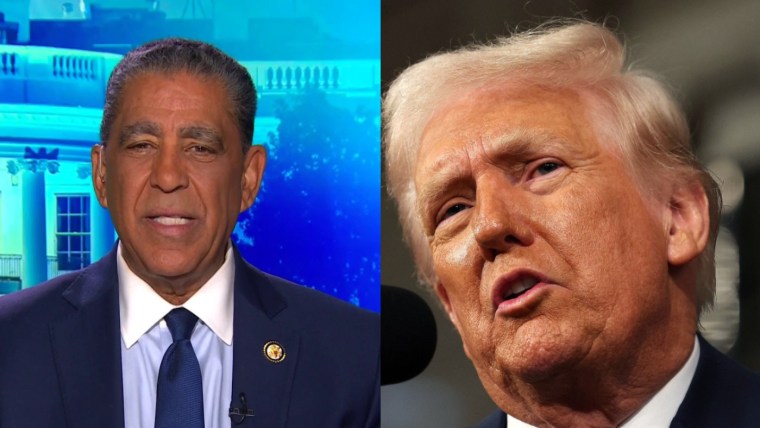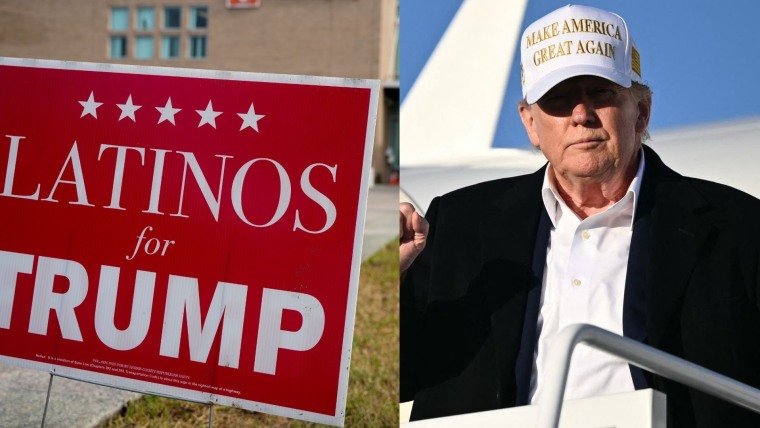As President Donald Trump approached his 100th day in office, national polls suggested a clear drop from the 46% share of the Latino vote he received last fall, according to exit polls. Surveys from the Pew Research Center, YouGov/Economist, CNN and Reuters/Ipsos put his approval among Latino voters between 27% and 34%. Two Latino-focused polls confirmed the decline. One national survey from UnidosUS and allied groups showed 37% Latino approval for Trump. Another from the Latino Community Foundation (LCF) and Voto Latino (VL) had the number at 39%.
Trump centered his 2024 pitch to Latinos on certain pillars: First, he promised to make the economy better for them. Second, he played up the historical “us vs. them” mentality, appealing to some groups, like Cuban Americans and even Venezuelans, while ignoring or vilifying others, betting that division would be more effective than trying to reach everyone.
That kind of chaos doesn’t go unnoticed. And Latino voters have already started to respond.
That pitch convinced enough Latino voters — a voter bloc that is more politically independent than often advertised — to give him a look in 2024. It led to historic gains for the Republican Party, echoing back to a time when George W. Bush won strong Latino support in 2004. But Trump’s momentum with Latinos seems to have stopped.
The first 100 days of the second Trump presidency have been loud, chaotic and calculated — and Latino voters, like everyone else, have been watching closely. The administration has ramped up mass immigration enforcement and broadcast Immigration and Customs Enforcement raids on traditional and social media. The White House lined up mug shots of arrested immigrants on the North Lawn. Reports surfaced of ICE profiling Latinos as gang members because of tattoos and baseball hats. The administration deported people with protected legal status to a prison in El Salvador. U.S.-citizen children are being deported. And Trump signed executive orders making English the country’s official language and even requiring English “proficiency” for truck drivers.
On the economy, a topic that still polls as Latinos’ top issue, tariffs on imports from Mexico were announced, then switched, then announced again. The “Liberation Day” rollout of tariffs on most countries around the world was just as disastrous. Recession fears are real, and Latinos will feel the brunt of it.
Elsewhere, Trump and Republicans seem likely to cut student loans and Medicaid, programs that disproportionately impact Latino communities. For instance, Latinos account for 30% of all Medicaid enrollees nationwide between 18 and 64 years old, a reflection of how deeply these public systems are woven into daily life for millions of families. And how can we forget about the threats of invading Panama, bullying Colombia into capitulation, praising “manifest destiny,” and renaming the Gulf of Mexico to the Gulf of America?

That kind of chaos doesn’t go unnoticed. And Latino voters have already started to respond.
“Latino voters from 2024 are paying close attention and are not afraid to hold leaders accountable,” said former President Barack Obama administration Cabinet member and Latino Community Foundation CEO Julián Castro. “At LCF, we are listening closely to the voices of our communities, and what we’re hearing is deep concern about the cost of living and the lack of real solutions. Economic relief was promised, and our community is still waiting. The Latino vote is not a blank check.”
The LCF/VL poll found that both major parties are viewed more unfavorably than favorably.
The LCF/VL poll found that 63% of Latino voters believe Trump has gone too far on immigration. Forty-four percent said they were worried someone close to them could be deported. On the economy, 68% said things are getting worse or staying the same in a bad way. Forty-three percent reported that their family is struggling to keep up with everyday expenses. And among those who rated their situation as “barely getting by,” 91% said Trump’s tariffs will increase inflation. When asked to describe how they felt about the administration’s first 100 days, the most common responses were “worried,” “angry” and “afraid.”
The UnidosUS poll told a similar story. Nearly two-thirds of Latino voters said the country is heading in the wrong direction, and 70% of them blamed President Trump. Fifty-four percent said the economy is worse than it was a year ago, half expect things to keep getting worse and 49% blamed Trump for the rising cost of living. Sixty percent said the administration is not focused enough on making everyday necessities more affordable.
And when asked about the broader impact, two-thirds said his tariffs will reduce their economic opportunity and security by raising prices on goods and services. Latino voters are living this every day, and the promises of a second Trump administration are already collapsing under the weight of reality.
“Latino voters are frustrated that their economic priorities are being ignored and that a key promise made by President Trump during the election is not being kept. Economic discontent was the most potent driver in the 2024 election, helping President Trump increase support among Latinos. But over half of Hispanic voters feel the economy is worse now than a year ago, and nearly as many believe it will be worse a year from now,” said Janet Murguía, president and CEO of UnidosUS, in a media release about their polling.

Yet before Democrats start thinking this is a moment, Latino voters also have a warning for the opposition. The LCF/VL poll found that both major parties are viewed more unfavorably than favorably. Forty-seven percent of Latino voters had an unfavorable view of the Democratic Party, compared to 43% favorable. For Republicans, the gap was even wider: 53% unfavorable to just 37% favorable. The skepticism about the future of this country goes beyond traditional party loyalty.
These polling numbers are reflections of how quickly trust can erode when campaign promises meet lived experience. Trump’s message in 2024 worked on some level with Latinos, but governing, especially in this chaotic format, is far different from campaigning, and Latino voters have shown they’re not interested in giving him the benefit of the doubt.

